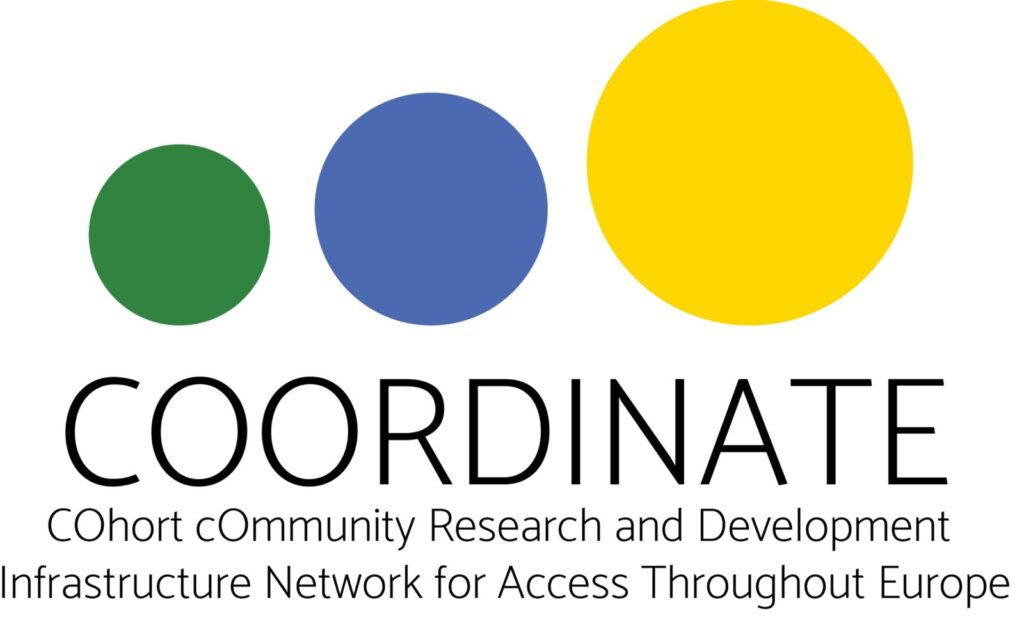COhort cOmmunity Research and Development Infrastructure Network for Access Throughout Europe
HORIZON 2020. INFRAIA-02-2020 –101008589
Duration: 1. 4. 2021–31. 3. 2025
Coordinator at ZRS Koper: Mateja Sedmak, PhD
Project’s budget: 4.988.915,00 EUR
Participating Institute at ZRS Koper: Institute for Social Studies
Partner organisations:
- The Manchester Metropolitan University, United Kingdom
- University College Dublin, National University of Ireland, Dublin, Ireland
- European Research Infrastructure Consortium, Norway
- Sveučilište u Zagrebu, Filozofski fakultet, Croatia
- Tampereen Korkeakoulusaatio SR, Finland
- University of Ljubljana, Faculty of Social Sciences, Slovenia
- Institut društvenih znanosti Ivo Pilar, Croatia
- Universidad Pompeu Fabra, Spain
- Institut National D’etudes Demographiques, France
- University of Essex, United Kingdom
- Europaisches Zentrum fur Wohlfahrtspolitik und Sozialforschung, Austria
- Instituto Universitário de Lisboa, Portugal
- Helsingin Yliopisto, Finland
- Alma Mater Studiorum – Universita di Bologna, Italy
- Stichting Centerdata, Netherlands
- University College London, United Kingdom
- Koninklijke Nederlandse Akademie van Wetenschappen, Netherlands
- Gesis-Leibniz-Institut fur Sozialwissenschaften EV, Germany
- Ipsos GmbH, Germany
- Kantar LTD, United Kingdom
- cApStAn SA, Belgium
The aspiration to secure the wellbeing of children and young people is explicit in Grand Challenges such as the UN’s Sustainable Development Goals. The EU has similarly highlighted the importance of securing the future of children and young people. It has become accepted that inequalities must be thought of longitudinally and not regarded as static events unrelated to prior events and future likelihoods. Policy makers must ensure that they base their policy interventions and adjustments on the best evidence available and this must include, inter alia, cohort survey data. COORDINATE will begin to fill the serious and extensive gaps in the availability of robust and suitable data for the monitoring and evaluation of child wellbeing in Europe.

 en
en Slovenščina
Slovenščina Italiano
Italiano